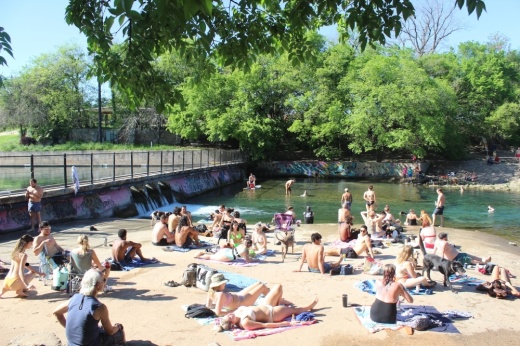As laid out in the official order, Austin peace officers, code inspectors and fire marshals are given enforcement authority. Those in violation can receive up to a $1,000 citation or be placed in jail for up to 180 days. During her announcement of the shelter-in-place order, Travis County Judge Sarah Eckhardt said authorities would reserve such penalties for "egregious" violations.
“At the end of the day, what [this] means is that we’re asking our community to stay home to the greatest extent possible,” Eckhardt said during the March 24 announcement of the order. The Austin area followed Dallas County and the city of Waco as Texas jurisdictions to issue lock-down orders. Similar orders have been issued on a statewide scale across the country.
Austin has been under strict restrictions on public gatherings since March 17, when Austin Mayor Steve Adler announced prohibitions on gathering of more than 10 people and shut dine-in service at all area bars and restaurants. Gov. Greg Abbott followed it up with a similar statewide decree two days later.
The announcement, nor the restrictions on gatherings already in place, did not stop substantial crowds of Austinites from gathering on what is known locally as the free side of Barton Springs Pool to take advantage of March 24's sunny and 90-degree weather. A city spokesperson said to combat crowds like this, it would rely on people reporting violations of the order to 311, Austin’s hotline for information and non-emergency calls, starting March 25. The spokesperson said the city's priority would be to "inform and educate" and would only use penalties as a "last resort."Meanwhile, on the free side of Austin’s Barton Springs Pool, concerns over the #coronavirus appear to be minimal. pic.twitter.com/Cb30My951l
— Christopher Neely (@TopherJNeely) March 24, 2020
According to Austin's order, only "essential businesses" as outlined in the order's text are allowed to stay open. Likewise, only social activity deemed essential, such as those related to health and safety, obtaining necessary services and supplies such as groceries, exercise that meets social distancing requirements and caretaking duties are permitted. Check here for more information on what is allowed and not allowed.





